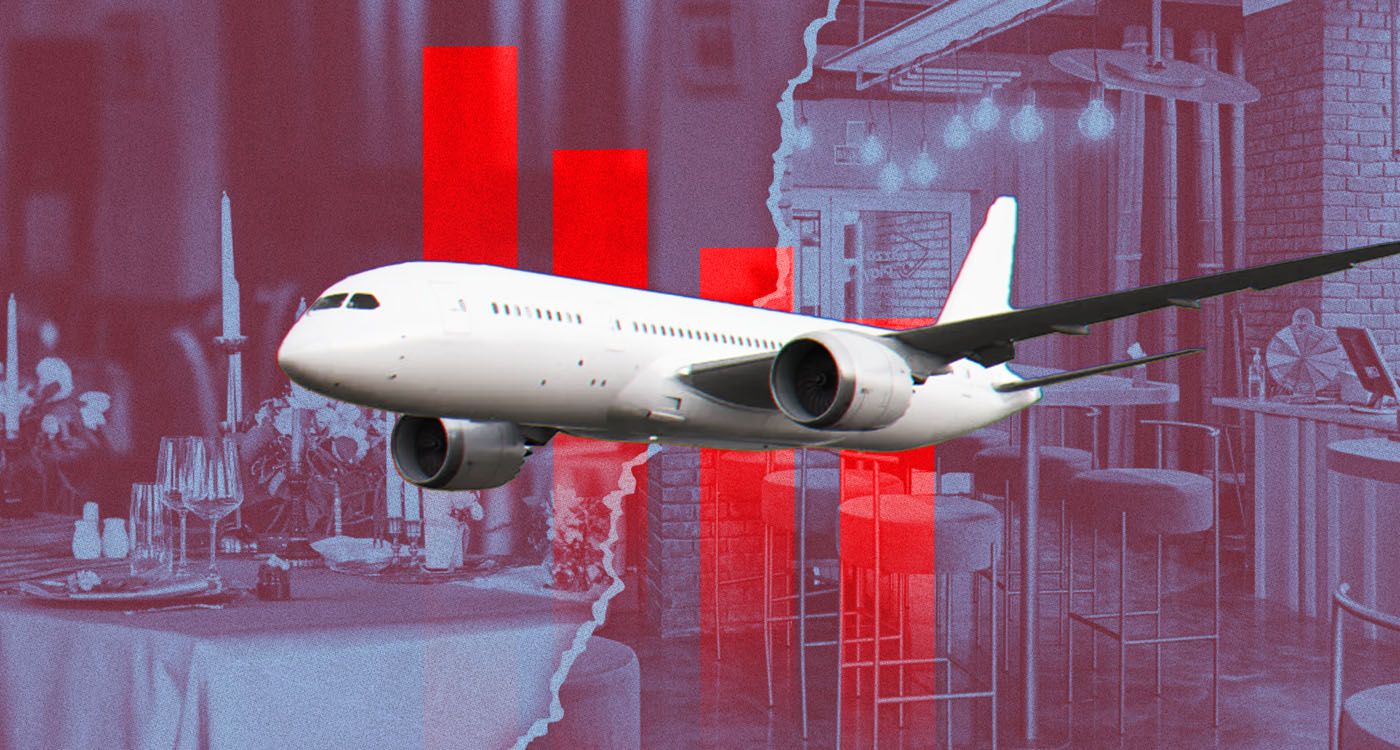
Before the war, 60 airlines flew to Beirut; only Middle East Airlines remains today. Flights that once operated at 80-90% capacity now barely reach 20%, especially during peak seasons like Christmas and New Year. Travel to Lebanon has decreased by 80% compared to previous years, largely due to the ongoing conflict.
The tourism sector, one of the hardest hit, is trapped in a “war of support,” with no assistance from the State, leaving the private sector to bear the brunt and attempt to recover the losses. Lebanon had pinned hopes on a strong tourism season to revive an economy struggling since 2019, which had generated nearly $5.4 billion in tourism revenue, according to Lebanon’s Central Bank (BDL). However, since October 7, 2023, when the Gaza war expanded into Lebanon, the sector has come to a standstill.
The restaurant, cafe, and nightclub sector has been among the hardest hit by the war. In 2022 and 2023, the sector managed to recover 20,000 jobs, attracting workers from the Gulf to Lebanon after losing a significant portion of its workforce due to the 2019 economic crisis. The sector saw substantial growth in 2023, with around 300 new restaurants and cafés opening and an additional 100 opening in early 2024. It employed 160,000 Lebanese citizens registered with social security, along with 45,000 seasonal workers, primarily university students.
Despite its importance as a major driver of investment, employment, and tax revenue for the Lebanese State, the sector quickly deteriorated as airlines canceled flights to Beirut and foreign and Arab embassies urged their citizens to leave the country following the war’s spread and airstrikes on Beirut and its suburbs. This led to a staggering 90% decline in tourism, along with a sharp drop in activity at restaurants, cafés, and nightclubs.
Tony Ramy, President of the Syndicate of Restaurants, Cafes, Nightclubs, and Pastry Shop Owners in Lebanon, states: “After five years of successive crises and the absence of reforms, we have found ourselves in a war economy, stripped of resources and capabilities. Unfortunately, we have slipped into a full-scale conflict. Our current focus is on keeping the private sector afloat and preserving our employees and professional structures, who are vital partners in production, for the coming months. Our goal is to revive the economy as soon as the hostilities cease while maintaining the highest standards of quality, excellence, and service.”
Ramy continues: “It is important to distinguish between damages and losses. Damages cannot be fully assessed yet; we must wait until the war ends for a clearer picture. As for the current losses, we estimate them as follows: in 2023, tourism revenues reached approximately $6 billion. This year, they will barely exceed $2 billion, meaning the sector has lost around $4 billion. However, it is crucial to remember that Lebanon operates within a free market economy, and these figures reflect the outlook of the restaurant, nightclub, and cafe sector.”
The holiday season, which traditionally accounts for over 35% of the sector’s tourism revenue and is vital for employees' salaries and tips, will unfortunately not provide the same opportunities this year. Large events or opulent evenings are unlikely to take place. Nevertheless, the syndicate is doing everything it can to maintain some sense of vitality and hope, as much as possible, in Lebanon’s safer areas. “Our resistance is both a tourism and economic resistance,” states Ramy.
Regarding the overall situation, 60 to 70% of restaurants in downtown Beirut are closed, while establishments in the Beqaa and South are largely paralyzed. However, there is some activity in tourist areas such as Broummana, Antelias, and Naqqash, offering a glimmer of hope. Rami continues, “Our focus is now on Lebanon's post-war future. Will Lebanon emerge as a new country? A politically and security-stable Lebanon, where reconstruction and reforms begin, and a sustainable tourism sector thrives? If a political solution leading to a real State is not found, there will be no investments, and our task will simply be to preserve the remaining institutions. We are hopeful for a new Lebanon because it truly deserves to thrive as a sustainable tourism destination, with its natural beauty and world-class cuisine.”
The tourism sector was one of the first to adopt “dollarization,” converting employee salaries from Lebanese pounds to US dollars to protect human and intellectual capital. However, today, many business owners can only afford to cover salaries for one or two months at most. As a result, employees are facing pay cuts, layoffs, or, in some cases, full closures of businesses. With tourism activity nearly non-existent and purchasing power dwindling—evidenced by a drastic reduction in bills—the situation remains dire.
The foremost priority for restaurant owners is to retain their skilled workforce over the coming months, especially as demand for Lebanese workers in the Gulf region increases. This reality calls for meticulous crisis management and long-term planning to ensure the survival of these institutions.
The war has only compounded the suffering of tourism business owners in a country that has failed to provide any form of support to the sector for more than two decades. There have been no tax incentives, exemptions, or relief during the most challenging periods. These businesses have carried the full weight of wars, political instability, protests, the Beirut port double-explosion, the COVID-19 pandemic, and the ongoing financial and economic crisis. As a result, tourism businesses in Lebanon are left to fight for survival on their own, fully aware that even if the war ends, there will be no one to help them recover the losses incurred during this relentless war of attrition that they did not cause.




Comments